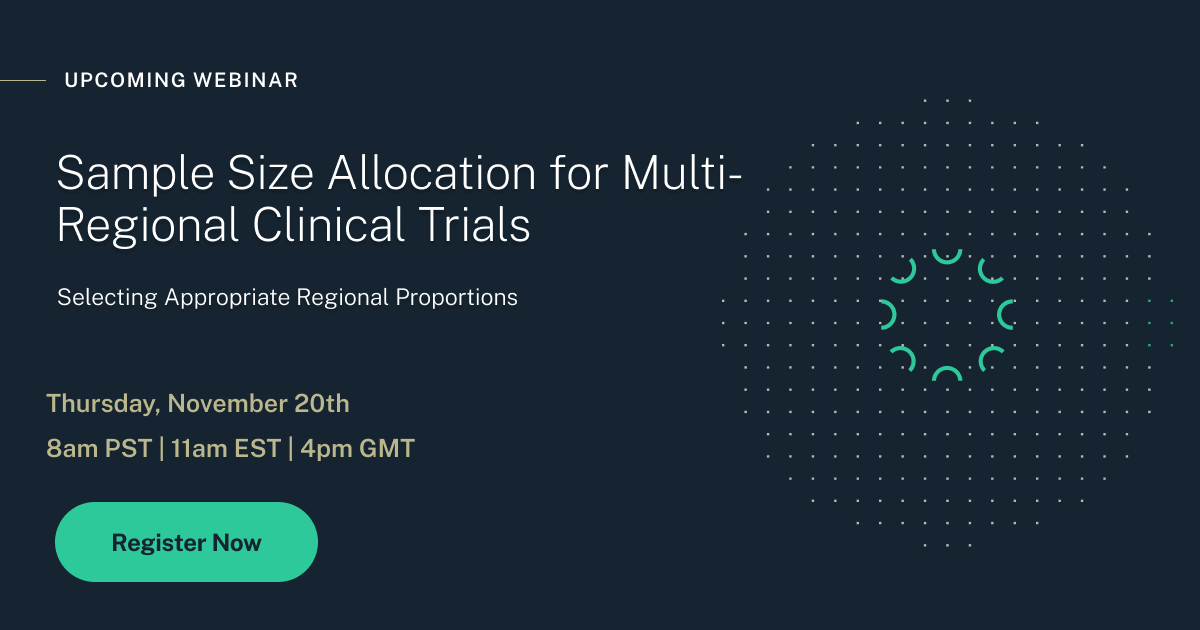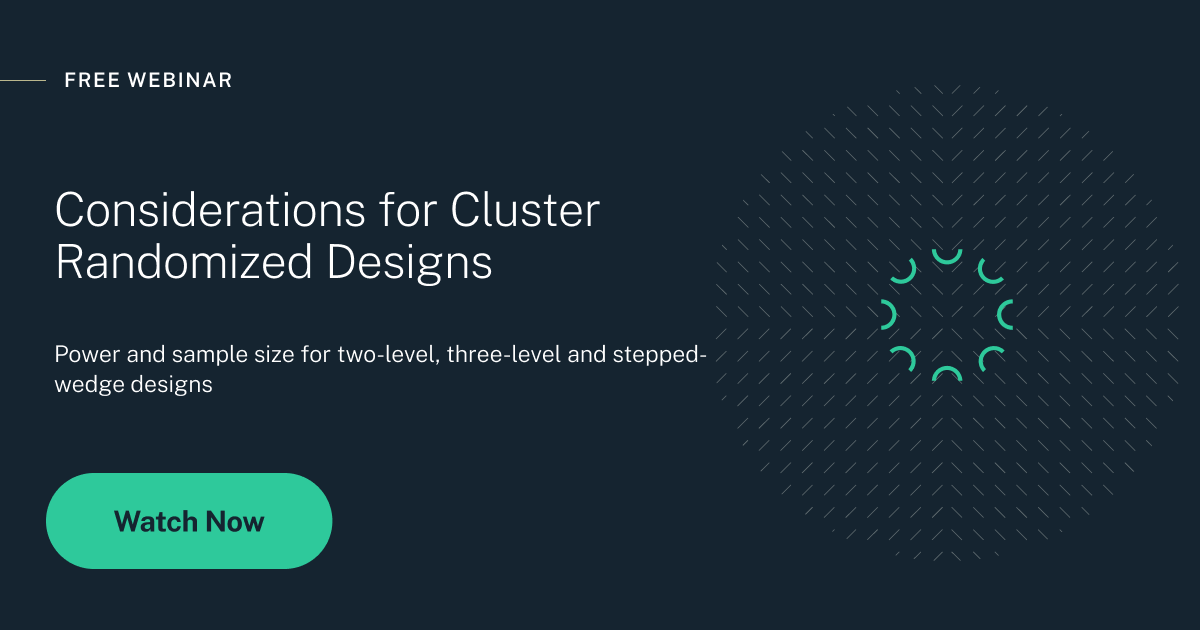A Guide to Sample Size for Categorical Endpoints
Sample Size for Categorical Endpoints
Binary, Ordered & Contingency Table Data
Categorical data is among the most common types of data found in clinical trials and comes in a variety of different forms such as binary and ordered categorical data.
You will learn about:
- Statistical Methods for Categorical Data
- Sample Size for Categorical Data Methods
- Types of Categorical Data
Sample Size for Categorical Endpoints
Categorical (also known as proportion) data is among the most common types of data found in clinical trials. In wider scientific research, three common types are binary data, ordered categorical data and contingency table data.
In this tutorial, we have examined some practical problems that you are likely to encounter and offered solutions using the following methods:
- Sample Size for Two Independent Proportions (Chi-Squared, Exact Tests)
- Sample Size for Two Ordered Categorical (Proportional Odds Model)
- Power for Chi-squared Independence Test for 2-Way Contingency Table
Binary Data is data where subjects are categorized into one of two categories (e.g. disease/no disease) as the outcome of interest. This data is extremely common across various clinical areas with common statistical methods for binary data including chi-squared tests and logistic regression.
Ordered categorical (also known as ordinal) data is where subjects are categorized into one of the available categories and in which each category is ordered from best to worst. Scales for areas such as pain or disability are a common example in clinical trials with common statistical methods including the proportional odds model and the Wilcoxon test.
Contingency table data (also known as cross-tab) shows the frequency between and within two or more categorical outcomes and would be common in areas such as epidemiology. Tests for independence such as the chi-squared and Fisher’s exact tests are commonly used for this type of data.
So watch this tutorial as we have explored the types of categorical data, the different designs and statistical methods appropriate for each type, and the sample size determination methods available for each of these contexts.
nQuery helps make your clinical trials faster, less costly and more successful with tools for sample size calculation - refining Frequentist, Bayesian & Adaptive designs.
Start your unlimited 14-day trial to help design efficient, informative and ethical adaptive trials.
Who is this for?
This will be highly beneficial if you're a biostatistician, scientist, or clinical trial professional that is involved in sample size calculation and the optimization of clinical trials in:
- Pharma and Biotech
- CROs
- Med Device
- Research Institutes
- Regulatory Bodies














